
After breast-conserving surgery and adjuvant endocrine therapy, whole breast irradiation can be omitted from the treatment journey of low-risk, older patients with pT1-2 tumors (≥3 cm) who are on local control at 10 years.

Your AI-Trained Oncology Knowledge Connection!


After breast-conserving surgery and adjuvant endocrine therapy, whole breast irradiation can be omitted from the treatment journey of low-risk, older patients with pT1-2 tumors (≥3 cm) who are on local control at 10 years.
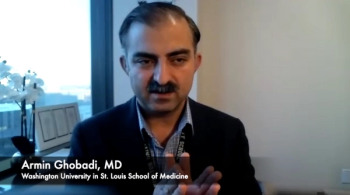
Research from a pilot trial presented at the 2020 American Society of Hematology (ASH) Annual Meeting found above average complete response and disease-free survival rates for patients with DLBCL.

A retrospective exploratory analysis found that intrinsic tumor subtype was associated with prognosis in patients with hormone receptor–positive, HER2-negative advanced breast cancer who received the CDK4/6 inhibitor ribociclib.

Treatment with oral paclitaxel, compared with the intravenous formulation, in combination with encequidar led to an estimated 26.5% reduction in the risk of death in patients with metastatic breast cancer, according to updated phase 3 findings of the KX-ORAX-001 trial.

A poster presented at the 2020 San Antonio Breast Cancer Symposium found a trend towards less frequent care refusal when a safety net hospital introduced nurse breast navigators.

Study results suggested that while chemotherapy-induced nausea/vomiting (CINV) can be treated, there is potential for it to return, especially for patients for whom CINV treatment did not work the first time around.

Research presented at the 2020 San Antonio Breast Cancer Symposium highlighted the need for reliable information to address the educational and psychosocial needs of patients with newly diagnosed metastatic breast cancer.

The study assessed the impact of a rurally focused telemedicine program on patient outcomes in the urologic oncology outpatient clinic at the University of Washington Medical Center.
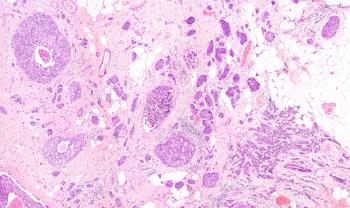
Chemotherapy plus endocrine therapy improved 5-year invasive disease-free and overall survival in premenopausal women with HR–positive, HER2-negative, lymph node–positive breast cancer and a recurrence score between 0 and 25.

The use of serial circulating tumor cell enumeration was confirmed to strongly predict overall survival outcomes in patients with metastatic breast cancer.

Women who were younger, diagnosed with breast cancer, and received chemotherapy were reported to have a higher risk of new chronic controlled substance use following mastectomy with reconstruction.

The study found that 53.2% of patients who reported at least 1 substantial symptom while receiving radiotherapy experienced under-recognition of at least 1 of 4 symptoms by their physician.

Treatment with abemaciclib and standard endocrine therapy reduced the risk of invasive disease recurrence or death in patients with high-risk, early hormone receptor–positive, HER2-negative breast cancer.
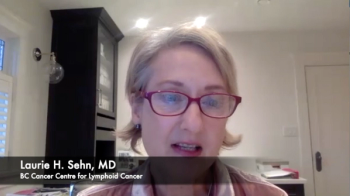
The preliminary findings of the extension arm of the phase 2 GO29365 study confirmed the benefits and tolerability of polatuzumab vedotin (Polivy) plus bendamustine (Bendeka) and rituximab (Rituxan) for patients with diffuse large B cell lymphoma.

Patients with hematologic malignancies were found to be at increased risk for significant morbidity and mortality from COVID-19, and the risk of death appeared to be greatest in those who were older, had more severe infection, a poorer prognosis, or who decided to forego intensive treatment.

The FDA granted breakthrough therapy designation to sotorasib for the treatment of patients with locally advanced or metastatic non-small cell lung cancer with KRAS G12C mutation, as determined by an FDA-approved test, following at least 1 prior systemic therapy.
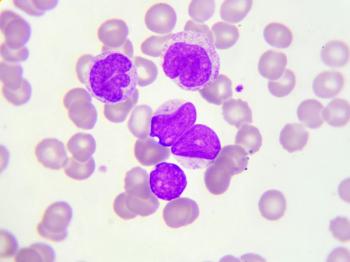
Data from initial dose cohorts of a phase 1/2 trial indicated the agent was found to safely drive natural killer cell proliferation in patients with high-risk myelodysplastic syndromes and acute myeloid leukemia.
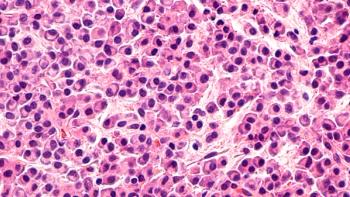
The ongoing phase 1/2 DREAMM-6 trial found that the addition of belantamab mafodotin to bortezomib and dexamethasone elicited high response rates and a suitable safety profile in patients with relapsed or refractory multiple myeloma.

A phase 2 trial found that SY-1425 and azacitidine demonstrated clinical activity with acceptable tolerability in a heavily pretreated population of patients with relapsed/refractory acute myeloid leukemia with RARA positivity.

Findings from a preclinical study suggested ALVR109 could be a safe and effective treatment for the coronavirus disease 2019.

A phase 1 trial found that MEDI-570 demonstrated clinical activity with durable responses, as well as acceptable safety and tolerability in patients with relapsed or refractory angioimmunoblastic T-cell lymphoma and peripheral T-cell lymphoma.
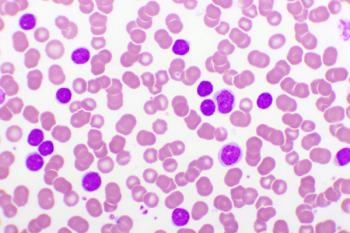
In preliminary findings from the ongoing first-in-human KOMET-001 trial, KO-539 showed activity in patients with relapsed or refractory acute myeloid leukemia.

The latest episode of CancerNetwork’s podcast focuses on the rising incidence rates of colorectal cancer in both young and black patients.
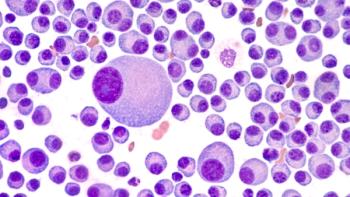
Daratumumab plus lenalidomide, bortezomib, and dexamethasone improved response rates and depth of response in patients with transplant-eligible, newly diagnosed multiple myeloma.

An integrated analysis of 2 phase 3 studies with up to 6.5 years of follow-up reported the outcomes of first-line ibrutinib (Imbruvica) in patients with chronic lymphocytic leukemia and small lymphocytic lymphoma and high-risk genomic features.

This pooled analysis from 4 clinical trials suggested that though patients with TP53 aberrations remain at risk for progression, first-line treatment with ibrutinib has meaningfully improved the poor prognosis in this high-risk population.
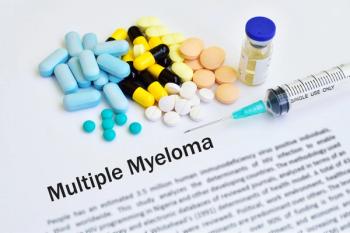
TNB-383B was well tolerated and researchers saw significant responses when it was administered at a higher dose level for heavily pretreated patients with relapsed/refractory multiple myeloma.

Data presented at the 2020 ASH Meeting found talquetamab elicited a high response rate with a tolerable safety profile for patients with relapsed/refractory multiple myeloma.
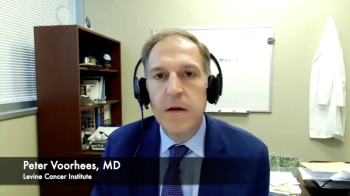
The myeloma expert discussed the randomized, open label study measuring the safety and efficacy of daratumumab (Darzalex) plus RVd for patients with newly diagnosed multiple myeloma.

Cevostamab, a FcRH5xCD3 bispecific antibody, was safe and highly active when treating heavily pretreated patients with relapsed/refractory multiple myeloma, according to data presented at the 2020 ASH Annual Meeting & Exposition.